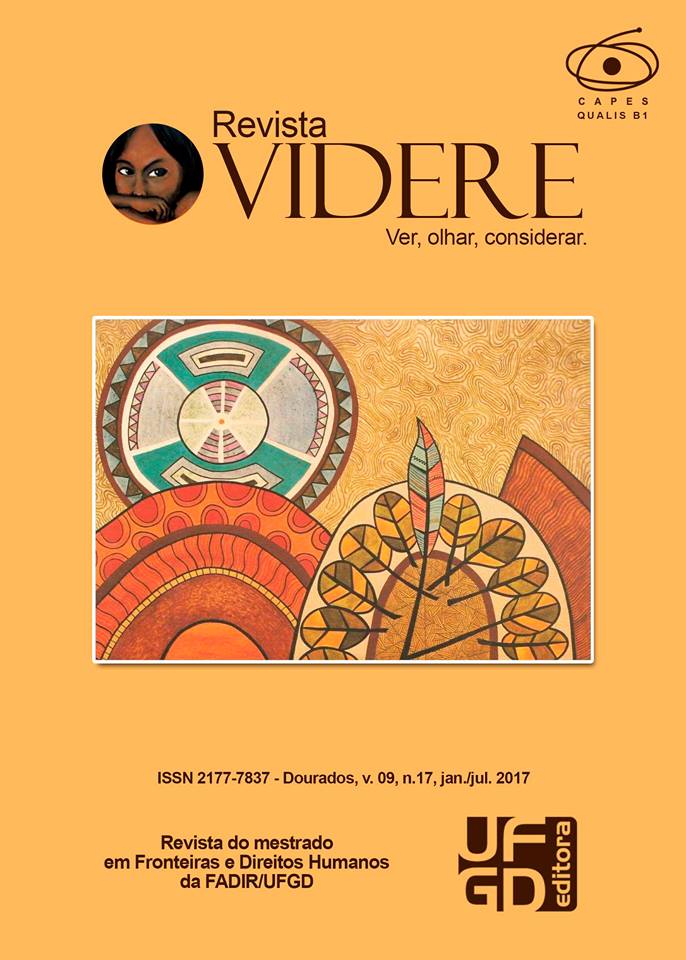Lei Brasileira de Inclusão e a teoria da capacidade: os desafios interpretativos para a nova legislação civil
DOI:
https://doi.org/10.30612/videre.v9i17.5847Keywords:
Lei brasileira de inclusão. Teoria da incapacidade civil. Tomada de decisão apoiada.Abstract
Após longa tramitação no Congresso brasileiro, em 2015, a Lei Brasileira de Inclusão tornou-se realidade. Um dos grandes destaques da legislação foi estabelecer que a deficiência deixa de ser um atributo da pessoa, não mais considerada, para efeitos civis, como uma condição estática e biológica da pessoa. Assim, o impedimento de longo prazo de natureza física, mental, intelectual ou sensorial passou a ser compreendido como resultado da interações das barreiras existentes que possam obstruir sua participação plena e efetiva na sociedade em igualdade de condições com as demais pessoas, conforme dispõe a Lei n. 13.146/2015. O objetivo deste trabalho é identificar em quais medidas a lei de inclusão interage com a teoria da capacidade e impõe novos desafios para construir o instituto da Tomada de Decisão Apoiada. Para que o objetivo seja alcançado, a pesquisa levanta nos referenciais teóricos, jurisprudenciais e históricos os limites e possibilidades que incorporaram nas legislações civis, a inclusão de deficientes. Até o presente momento, a lei de inclusão impôs alterações que a própria interpretação jurisprudencial ainda não foi capaz de resolver, principalmente pela ausência de diálogo legislativo entre a Lei Brasileira de Inclusão, que alterou o Código Civil brasileiro, e o Novo Código de Processo Civil, que manteve sua estrutura processual sem levar em consideração parte das inovações da lei de inclusão.Downloads
Downloads
Published
How to Cite
Issue
Section
License
Authors must accept the publication rules when submitting the journal, as well as agree to the following terms:
(a) The Editorial Board reserves the right to make changes to the Portuguese language in the originals to maintain the cultured standard of the language, while respecting the style of the authors.
(b) Authors retain the copyright and grant the journal the right to first publication, with the work simultaneously licensed under the Attribution-NonCommercial-ShareAlike 3.0 Brazil (CC BY-NC-SA 3.0 BR) that allows: Share - copy and redistribute the material in any medium or format and Adapt - remix, transform, and create from the material. CC BY-NC-SA 3.0 BR considers the following terms:
- Attribution - You must give the appropriate credit, provide a link to the license and indicate whether changes have been made. You must do so under any reasonable circumstances, but in no way that would suggest that the licensor supports you or your use.
- NonCommercial - You may not use the material for commercial purposes.
- Sharing - If you remix, transform, or create from material, you must distribute your contributions under the same license as the original.
- No additional restrictions - You may not apply legal terms or technological measures that legally restrict others from doing anything that the license permits.
(c) After publication, authors are allowed and encouraged to publish and distribute their work online - in institutional repositories, personal page, social network or other scientific dissemination sites, as long as the publication is not for commercial purposes.



















